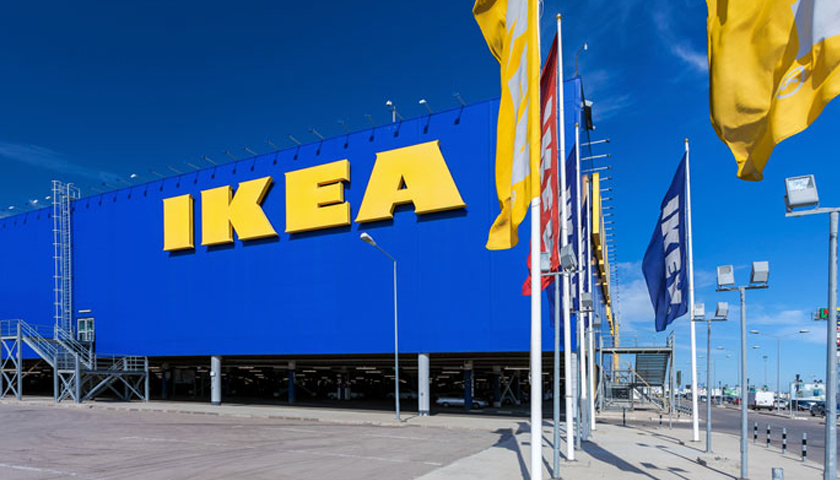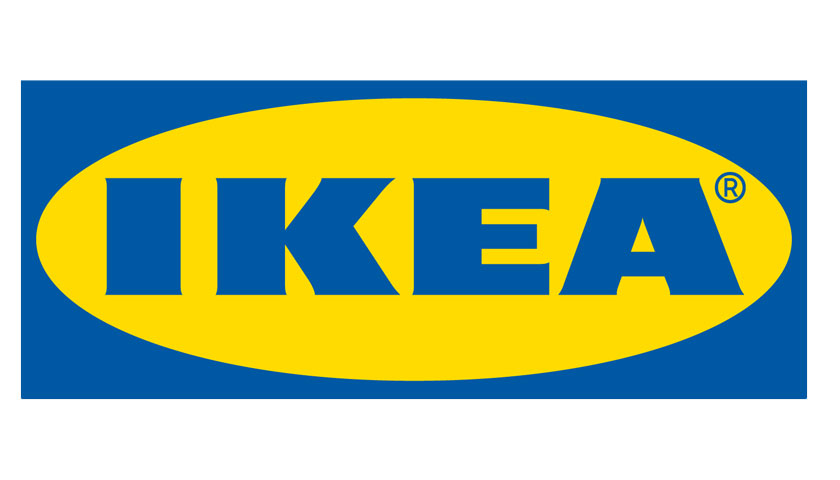The financial year 2023 (FY23)* was another year of global challenges but also of progress. Key movements include a 22% reduction of the total IKEA climate footprint in absolute terms** compared to baseline year FY16, strengthened climate goals, a continued increase in renewable electricity in retail and production, the introduction of a new bio-based glue and more than halving our climate footprint from product use at home compared to baseline FY16.
The IKEA Sustainability Report FY23 and the IKEA Climate Report FY23 are issued by Inter IKEA Group and cover the collective efforts from contributors across the entire IKEA franchise system and value chain.
The IKEA climate footprint in FY23 is estimated to be 24.1 million tonnes CO2 eq – a decrease of 12% compared to the previous year and 22% compared to the baseline year FY16. The reduction in FY23 is attributed to the continued increase in renewable electricity at both retail and production units, energy efficiency improvements in our lighting range, in addition to lower production volumes.
“Sustainability is an integral part of our business and our commitment to make sustainable living affordable and accessible to the many. We maintain a long-term perspective and are actively contributing to limiting our impact on climate change, reversing nature loss and securing equitable growth,” says Jon Abrahamsson Ring, CEO, Inter IKEA Group.
We continue to innovate and develop technologies to meet our climate goals and we aim to use only renewable or recycled materials by FY30.
“In FY23, we introduced bio-based glue in the IKEA Industry board factory in Lithuania and explored a new technology for recycling fibreboard. This will support the IKEA climate transition plans and the work to reduce emissions from materials, the largest contributor to the IKEA climate footprint,” continues Jon Abrahamsson Ring.
A significant achievement this year was the development of rigorous action plans that allowed us to strengthen our climate goals in line with the 1.5°C target and the Science Based Targets initiative (SBTi) Net-Zero standard. The new goals include at least halving greenhouse gas emissions from the IKEA value chain in absolute terms by FY30 compared to FY16 and reaching net-zero latest FY50. As of November 2023, the goals have been submitted to SBTi for approval.
“Even though there are many signs and evidence that society is off track with regards to global warming, it is more important than ever to act with urgency and stay committed to the Paris Agreement and to limit any overshoot as much as possible. To further support change, the IKEA business advocates for a complete phase out of fossil fuels and its subsidies, halting deforestation and addressing the root causes of air pollution,” says Pär Stenmark, Chief Sustainability Officer, Inter IKEA Group.
Other highlights from the financial year 2023 include:
- Progress towards 100% renewable electricity for IKEA stores, with 25 IKEA retail markets now consuming 100% renewable electricity – one more than last year.
- 100% renewable electricity at 142 additional factories or suppliers, bringing the total to 408.
- Climate footprint from product use at home decreased by 13% compared to FY22, and by 52% compared to baseline FY16.
- Reducing the climate footprint for Inter IKEA Group’s direct operations by 80% compared to the FY16 baseline .***
- Reduction in the amount of plastic packaging of consumer goods by approximately 47% and reducing total plastic packaging (including consumer packs, multipacks, unit loads and handling materials) by approximately 44% compared to baseline year FY21.
- Using, for the first time, ceramic production waste to make the new tableware range, SILVERSIDA.
- Provided 23.2 million assembly parts to enable our customers to prolong the life of products.
- Piloting the return and reuse of down and feathers for the GULKAVLE pillow and FJÄLLBRÄCKA duvet with a small-scale start-up operating in Belgium, Germany and the Netherlands.
- Launching the VINDSTYRKA sensor to monitor air quality in the home and create awareness of indoor air quality.
- 97.8% of wood in our products was either Forest Stewardship Council certified (FSC) or recycled.
- Taking an important step towards our FY30 commitment to provide and support living wages, by sharing our Responsible Wage Practices framework across the IKEA business and initiating an exploration to identify potential gaps among business partners.
- Launching a new global collection created with seven social businesses, securing jobs for people from vulnerable and marginalised groups across Asia.
The IKEA People & Planet Positive sustainability strategy outlines the ambitions and commitments, creating a common agenda towards 2030. More examples of progress are to be found in the IKEA Sustainability Report FY23 and the IKEA Climate Report FY23, including Inter IKEA Group, the 12 franchisees and our suppliers. Each part of the IKEA business sets goals and road maps to deliver on the strategy and to allow for locally tailored and relevant activities.
*FY23 is the period from 1 September 2022 to 31 August 2023.
**Includes IKEA stores and other customer meeting points in IKEA retail, as well as distribution centres, offices, etc. under the IKEA Brand.
***This corresponds to Inter IKEA Group scope 1 & 2 emissions, including Inter IKEA owned production operations at IKEA Industry and IKEA Components. However, it excludes the greenhouse gas emissions from franchisees and external direct suppliers, which are a part of our scope 3 emissions.


